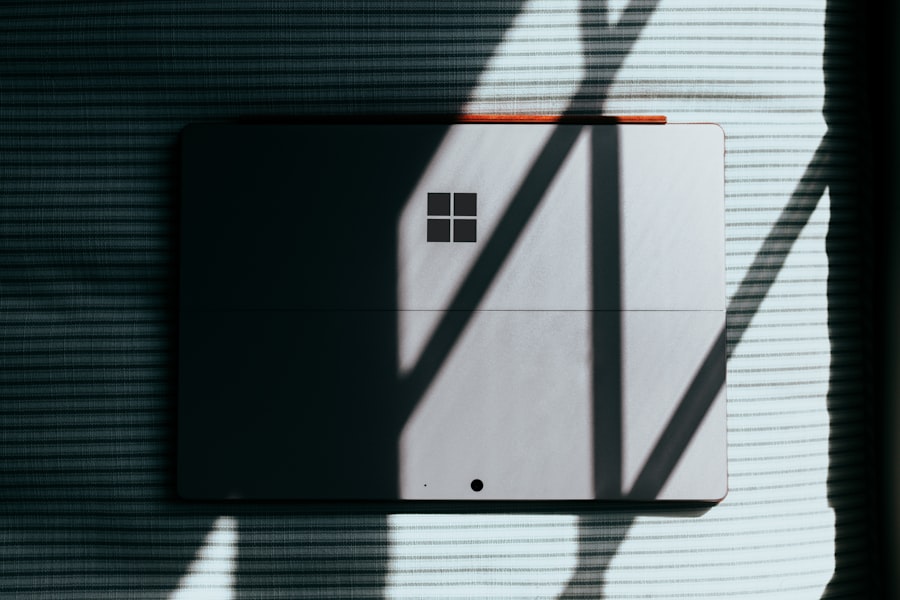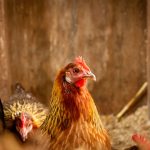Chickens are highly susceptible to heat stress due to their lack of sweat glands and reliance on panting for temperature regulation. As temperatures rise, chickens can quickly become overheated, leading to various negative health effects. Heat stress can result in decreased egg production, reduced feed intake, increased mortality rates, and overall decreased performance.
In severe cases, heat stress can be fatal. Chicken owners should be aware of the signs of heat stress in their flock, including panting, wing spreading, lethargy, and reduced egg production. Recognizing these signs allows owners to take proactive measures to prevent heat stress and ensure their chickens’ well-being.
The summer months pose a particular risk for chickens, as temperatures can soar and humidity levels increase. It is essential for chicken owners to understand the potential effects of heat on their flock and implement strategies to mitigate these risks. By taking steps to keep their chickens cool and comfortable, owners can improve the overall health and productivity of their flock.
Table of Contents
- 1 Providing shade and ventilation for your chickens
- 2 Ensuring access to cool, fresh water
- 3 Creating cooling areas with misters or fans
- 4 Adjusting feeding schedules to avoid heat stress
- 5 Monitoring your chickens for signs of heat exhaustion
- 6 Implementing emergency measures during extreme heat waves
- 7 FAQs
- 7.1 What are the signs of heat stress in chickens?
- 7.2 How can I keep my chickens cool during a heat wave?
- 7.3 What are some tips for providing shade for chickens?
- 7.4 How often should I change my chickens’ water during a heat wave?
- 7.5 Are there specific breeds of chickens that are more heat-tolerant?
Key Takeaways
- Heat stress can cause decreased egg production, decreased feed intake, and even death in chickens.
- Providing shade and proper ventilation in the chicken coop is essential to help chickens regulate their body temperature.
- Access to cool, fresh water is crucial for chickens to stay hydrated and maintain their body temperature during hot weather.
- Creating cooling areas with misters or fans can help chickens cool down and reduce the risk of heat stress.
- Adjusting feeding schedules to cooler times of the day can help prevent heat stress in chickens.
Providing shade and ventilation for your chickens
Providing Shade for Chickens
One of the most effective ways to protect chickens from the harmful effects of heat is to provide ample shade in their living environment. Shade can be provided through natural means, such as trees or shrubs, or through man-made structures like awnings or tarps. Ensuring that chickens have access to shaded areas throughout the day can help them regulate their body temperature and avoid overheating.
Ventilation: A Crucial Aspect of Chicken Care
Additionally, proper ventilation is essential for maintaining a comfortable living environment for chickens. Good airflow can help reduce the build-up of heat and humidity in the coop, preventing heat stress and its associated negative effects.
Using Reflective Materials to Keep the Coop Cool
In addition to providing shade and ventilation, chicken owners can also consider using reflective materials to deflect sunlight and reduce the amount of heat absorbed by the coop. Reflective roof coatings or light-colored materials can help keep the coop cooler during hot weather.
Creating a Comfortable Living Environment
By taking these measures, chicken owners can create a more comfortable living environment for their flock and reduce the risk of heat stress.
Ensuring access to cool, fresh water

Access to cool, fresh water is essential for preventing heat stress in chickens. During hot weather, chickens will drink more water to stay hydrated and regulate their body temperature. It’s important for chicken owners to regularly check and refill water containers to ensure that their flock has an adequate supply of clean, cool water.
Additionally, owners can consider adding ice or frozen water bottles to the water containers to help keep the water cool throughout the day. In addition to providing cool water, chicken owners should also consider offering electrolyte supplements to their flock during periods of extreme heat. Electrolytes can help replenish essential nutrients lost through panting and sweating, supporting overall health and well-being.
By ensuring that their flock has access to cool, fresh water and electrolyte supplements, chicken owners can help prevent heat stress and support their chickens’ health during hot weather.
Creating cooling areas with misters or fans
In addition to providing shade and ventilation, chicken owners can create cooling areas within the coop or run using misters or fans. Misters can be installed in the coop or run to create a fine spray of water that helps lower the ambient temperature and provide relief from the heat. Similarly, fans can be used to improve airflow and reduce the build-up of heat within the living environment.
By incorporating misters or fans into their chicken care routine, owners can help keep their flock cool and comfortable during hot weather. Another option for creating cooling areas is to provide shallow pools or dust baths for chickens to wade in or dust themselves with. These natural cooling methods can help chickens regulate their body temperature and reduce the risk of heat stress.
By implementing these cooling strategies, chicken owners can create a more comfortable living environment for their flock and reduce the negative effects of heat stress.
Adjusting feeding schedules to avoid heat stress
During periods of extreme heat, it’s important for chicken owners to adjust their feeding schedules to help prevent heat stress in their flock. Feeding chickens during the cooler parts of the day, such as early morning or late evening, can help reduce the metabolic heat generated by digestion and minimize the risk of overheating. Additionally, owners can consider offering smaller, more frequent meals to encourage consistent feed intake without overloading the digestive system.
In addition to adjusting feeding schedules, chicken owners should also consider offering cool treats or snacks to their flock during hot weather. Fruits and vegetables with high water content, such as watermelon or cucumbers, can help keep chickens hydrated and provide relief from the heat. By making these adjustments to their feeding routine, owners can help prevent heat stress in their flock and support their overall well-being during hot weather.
Monitoring your chickens for signs of heat exhaustion

Recognizing the Signs of Heat Exhaustion
It’s crucial for chicken owners to closely monitor their flock for signs of heat exhaustion during periods of extreme heat. Common signs of heat exhaustion in chickens include panting, wing spreading, lethargy, decreased egg production, and reduced feed intake.
Proactive Measures to Prevent Heat Stress
By regularly observing their flock and being attentive to these signs, owners can take proactive measures to prevent heat stress and support their chickens’ health.
Temperature Monitoring
In addition to visual monitoring, owners can also use a thermometer to regularly check the temperature within the coop or run. Monitoring the ambient temperature can help owners identify potential risks of heat stress and take action to mitigate these risks.
Preventing Heat Stress and Ensuring Well-being
By staying vigilant and proactive in monitoring their flock for signs of heat exhaustion, chicken owners can help prevent heat stress and ensure the well-being of their chickens during hot weather.
Implementing emergency measures during extreme heat waves
During extreme heat waves, it’s important for chicken owners to be prepared to implement emergency measures to protect their flock from heat stress. This may include relocating chickens to a cooler area, such as a shaded spot or a well-ventilated building, if the current living environment becomes too hot. Owners should also be prepared to provide additional water sources and electrolyte supplements to help keep their flock hydrated and healthy.
In extreme cases, owners may need to consider using cooling methods such as wetting down the ground with water or providing ice packs or frozen water bottles within the coop or run. These emergency measures can help lower the ambient temperature and provide relief from the heat for chickens at risk of heat stress. By being prepared to implement emergency measures during extreme heat waves, chicken owners can help protect their flock from the harmful effects of heat stress and ensure their well-being during challenging weather conditions.
In conclusion, understanding the effects of heat on chickens is crucial for ensuring the well-being of your flock during hot weather. By providing shade and ventilation, ensuring access to cool, fresh water, creating cooling areas with misters or fans, adjusting feeding schedules, monitoring for signs of heat exhaustion, and implementing emergency measures during extreme heat waves, chicken owners can help prevent heat stress and support the overall health and productivity of their flock. With proactive care and attention, chickens can thrive even in challenging weather conditions, ultimately leading to a happier and healthier flock.
If you’re looking for tips on how to keep your chickens cool during a heat wave, you may also be interested in learning about the importance of providing a coop for your turkeys. Check out this article to learn more about the benefits of having a coop for your turkeys and how it can help keep them safe and comfortable in various weather conditions.
FAQs
What are the signs of heat stress in chickens?
Some signs of heat stress in chickens include panting, holding their wings away from their bodies, decreased egg production, lethargy, and loss of appetite.
How can I keep my chickens cool during a heat wave?
You can keep your chickens cool during a heat wave by providing plenty of shade, ensuring they have access to cool, fresh water at all times, using fans or misters to create a cooling breeze, and offering frozen treats such as fruits and vegetables.
What are some tips for providing shade for chickens?
You can provide shade for chickens by using tarps or shade cloths to cover their coop and run, planting trees or shrubs to create natural shade, and positioning their coop in a shaded area of your property.
How often should I change my chickens’ water during a heat wave?
During a heat wave, it’s important to change your chickens’ water at least twice a day to ensure it stays cool and fresh. Adding ice to the water can also help keep it cool for longer.
Are there specific breeds of chickens that are more heat-tolerant?
Yes, some breeds of chickens are more heat-tolerant than others. Breeds such as Leghorns, Rhode Island Reds, and Sussex are known for their ability to handle hot temperatures better than breeds with heavier, denser feathers.
Meet Walter, the feathered-friend fanatic of Florida! Nestled in the sunshine state, Walter struts through life with his feathered companions, clucking his way to happiness. With a coop that’s fancier than a five-star hotel, he’s the Don Juan of the chicken world. When he’s not teaching his hens to do the cha-cha, you’ll find him in a heated debate with his prized rooster, Sir Clucks-a-Lot. Walter’s poultry passion is no yolk; he’s the sunny-side-up guy you never knew you needed in your flock of friends!







